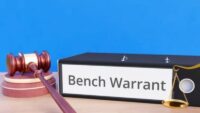A misdemeanor is basically a minor criminal offense, so if you’re convicted of a misdemeanor, it’ll continue appearing on your criminal record forever, with the exception of a court expungement.
If you want to learn more about how long a misdemeanor stays on your record, continue reading!
What Is a Misdemeanor Conviction?
A misdemeanor conviction is a charge that’s considered a less severe crime than a felony.
If you’ve ever been accused of a misdemeanor, you could face up to 30 days in jail or a fine of up to $625. Aggravated misdemeanors may lead to even harsher consequences, with up to 2 years of jail time and a fine of up to $6,250.
However, what should be more concerning for people who went through a misdemeanor conviction is that it becomes a part of their criminal record.
In other words, your landlord or employer may search your criminal record and learn about your misdemeanor. While a misdemeanor isn’t as serious as a felony, certain people may look at it in an exaggerated way. The good news is you can get your misdemeanor expunged.
What Is Expungement?
Expungement is the removal of a criminal conviction. It also includes sealing. Some states have a formal expungement process, while others don’t. In either case, your best bet is to apply for a judicial dismissal to get the conviction removed.
If you’ve already gone through your probation period, you have the right to apply for a judicial dismissal and get it approved.
However, keep in mind that if you’re currently charged with an offense, you won’t be able to get a judicial dismissal for your past misdemeanor.
Difference Between Sealing and Expungement
There are two ways to hide your criminal records from public access: Expungement and sealing.
Expungement is the complete removal of your criminal record, making it inaccessible to anyone. On the other hand, sealing is basically “locking” your criminal record so that only specific entities can access it like, such as government agencies.
Deciding whether you should apply for expungement or sealing can be tricky. Each case will be different, so it’d be best to consult with a criminal defense lawyer on this.
How to Get a Judicial Dismissal
To be eligible for a judicial dismissal, you need to send a petition to the court to remove the misdemeanor from your criminal record.
You can go through the process on your own, but it might be a good idea to hire an attorney just to be on the safe side and make things move quicker.
Once the court reviews your application and approves it, the charges will be dismissed.
Can Multiple Misdemeanors Be Expunged?
Yes, you can get more than one misdemeanor expunged. However, you’ll have to apply for each misdemeanor on its own since you can’t remove all misdemeanors together with the same petition.
Does a Misdemeanor Conviction Show Up on a Background Check?
A misdemeanor conviction will show up on public background checks conducted on you. Any sort of illegal offense will appear in your criminal records, which could make it harder for you to get a job or a house.
This may only apply to county records, so the misdemeanor will only appear if the employer or landlord checks your county records.
However, county courts often relay criminal records to state offices, meaning the conviction could appear in your federal records.
Nevertheless, it’s crucial that you be 100% transparent with your potential employer about your criminal record if they ask about it. The only exception is when you live in a city where a potential employer inquiring about the criminal history of candidates is illegal.
A good practice is to never mention anything about your criminal record until the employer inquires about it.
How to Find Out What Others Can See in a Background Check
The best way to learn how your criminal record will appear to other people is to run a background check on yourself. There are various free online services that help you do that.
All you have to do is enter your first and last name, and the service will give you your full background check, including your criminal history.
In some cases, you might be required to enter additional information, like address, birth date, or other personal information.
On a side note, keep in mind that not all services are 100% accurate, so make sure that you use a trusted service.
What Other Information Can Potential Employers See in a Background Check?
Other than misdemeanors, here’s what your employer can legally find out about you in a background check:
- Employment history
- Felonies
- Drug testing results
- Dismissed charges
- Past employment
- Education history
Can Anyone Run a Background Check on You?
Pretty much anyone can conduct a background check to learn about your criminal record, and it’s not illegal since background checks only display public information.
However, according to law, you might be eligible to get certain things removed from your background checks. You can run a background check on yourself to get a detailed overview of what other people can find about you.
Final Words
A misdemeanor will appear in criminal records and background checks if you don’t take legal action to get it expunged or sealed.
You must do the best you can to get the misdemeanor clear if you want to increase your chances of getting a job or buying a house.
Do you want to know what others see in your background checks? Conduct a free online background check on yourself now.
Related Posts
 What Is a Capias Warrant
What Is a Capias Warrant Are You Notified When a Warrant Is Issued?
Are You Notified When a Warrant Is Issued? How Long Does Taskrabbit Background Check Take?
How Long Does Taskrabbit Background Check Take? LexisNexis Background Check Review
LexisNexis Background Check Review![The Best Background Check Softwares For Dating [Our Reviews and Comparison]](https://backgroundhawk.com/wp-content/uploads/2021/02/5-min-150x150.jpg) The Best Background Check Softwares For Dating [Our Reviews and Comparison]
The Best Background Check Softwares For Dating [Our Reviews and Comparison] How to Get Charges Dropped Before Court Date
How to Get Charges Dropped Before Court Date How to Get a Fugitive Warrant Lifted
How to Get a Fugitive Warrant Lifted Do Arrests Without Conviction Show Up on Background Check?
Do Arrests Without Conviction Show Up on Background Check? How Often Do Police Check Hotels for Warrants?
How Often Do Police Check Hotels for Warrants? How Long Does Instacart Background Check Take?
How Long Does Instacart Background Check Take?

